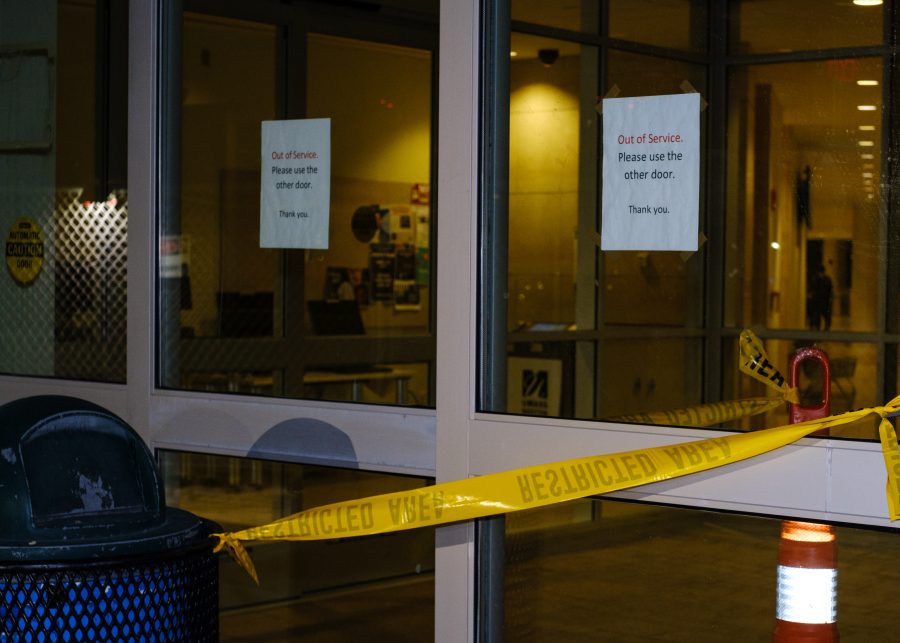At the beginning of the Fall 2021 semester, professors began assuring students that, in light of the COVID-19 situation, classes would be able to switch to a virtual format at the drop of a hat, if the need arose. This plan made sense; during the height of the pandemic, UMass Boston faculty certainly had ample time to learn how to run virtual classrooms, as on-campus classes were almost entirely moved online. Surely, UMass Boston should be prepared to utilize online-learning platforms as they never have been before, and many of us might even have been thinking, “Now that our professors have the experience and confidence to host class over Zoom, the school will be more willing to close during inclement weather!”
But if you were one of the students who thought this, you were wrong.
On Wednesday, Oct. 27, the Boston area was inundated by a nor’easter that wreaked havoc up the East Coast over the week (1). In Massachusetts alone, the storm caused almost 500,000 power outages before 1 p.m. (2), and travel was seriously discouraged in the Southeastern part of the state (3). While Boston, being somewhat sheltered by its position in Massachusetts Bay, did not get the absolute worst of it, conditions were certainly not good. The Red Line service was blocked by downed trees between Quincy Center and JFK/UMass and replaced by shuttle busses, the walkway between McCormack Hall and the Quinn Administration Building was deemed too dangerous to use, and travel was also restricted through the middle of campus due to fallen fences. Looking out across the harbor, whitecapped waves could be seen indicating extreme winds and crashing, longshore currents ripped across shorelines on the islands and at the foot of campus grounds. Bits of styrofoam were strewn across the new paving stones between buildings. A sliding glass door from the Campus Center lay on the ground, ripped off its track.
As email and text alerts flooded in that morning, many of us might have assumed that the University would decide to close for the day by moving all classes online; or at least, most professors would decide to do so of their own volition. But the school did not close, and many professors still held classes. In my own experience, classrooms were half-empty with students sometimes arriving 45 minutes late. Navigating around campus was a nightmare, and shuttle bus drivers seemed to have had no notification that they were to take students from the Campus Center to the ISC to provide access to the library. Ironically, instructions to take the shuttles had already been sent directly to students; but even those instructions were confusing and unclear, and I found myself speaking with multiple students who had no idea how to get to class.
Groups of people waited in the high winds and rain at the roadside in front of the ISC, waiting for sparsely grouped shuttles. There were also no new routes directly from the ISC to the Campus Center; rather, students had to travel to JFK/UMass station or Bayside Parking Lot, and then back around to Campus Center. Traveling around campus, in general, was difficult. This situation persisted until about 4:40 p.m., when the fences were picked back up and winds subsided a bit.
To be clear, I am not placing much (if any) blame for this calamity on the professors; they all had to navigate to campus as well, and I know at least a few allowed students who could not make it to class to tune in through Zoom. The university management is the one who seems to have dropped the ball; both in terms of deciding to remain open, and in a lack of communication with the shuttle drivers and many students.
The whole situation was confusing, to say the least. Why is UMass Boston faculty promoting the idea that they can easily transfer to online classes due to a pandemic when they won’t even take the opportunity to do so in inclement weather? What if one of those downed trees had hurt or killed a student or professor? And what of students and professors who have physical disabilities, making a trip in near gale force winds just to come to class all the more dangerous? Their grades should not be affected simply because they could not safely get to class. And while the power outages certainly would have caused several students to be without Wi-Fi in the home, they would still be safer traveling a shorter distance to a Wi-Fi spot than migrating to campus in such conditions. Of course, they should not be penalized if they truly cannot log into class in a situation like this.
UMass Boston is a commuter school, and the completion of two small residence halls just three years ago does not change that fact. The overwhelming majority of students live off-campus, either opting to drive or, due to the exorbitant parking fees, take public transit instead. Even if parts of campus were not deemed to be unsafe and blocked off—which they indeed were—road and public transportation conditions must be considered as heavily as on-campus conditions are when deciding whether to close campus. To do otherwise is dangerous to all and discriminatory to people with different mobility situations.

